
Five Things Stephanie Tyree Learned About Community Development and Leading a WV Non-Profit
Stephanie Tyree shares 5 powerful lessons from 13 years of leading WV’s community development movement and building lasting change across small towns.
An exciting coalition of West Virginia cities, economic revitalization organizations, leading academic institutions, and private sector innovators joined at non-profit Coalfield Development Corporation’s “West Edge Factory” in Huntington, WV on Monday, February 7 to officially launch the “Appalachian Community Transformation” Coalition or (“ACT Now Coalition”). ACT Now will transform the struggling southern West Virginia region with economic investments and job creation in solar roofing and community solar installations, upgrades of buildings to be green and energy smart, redevelopment of dead factories and idled brownfields for new green technology manufacturing and other sustainable uses, green collar jobs, and the transformation of abandoned minelands into productive new sectors.
On December 15, 2021 Coalfield Development’s CEO Brandon Dennison joined at the White House with the U.S. Secretary of Commerce, the U.S. Secretary of Energy, the U.S. National Climate Advisor, the Director of the White House National Economic Council, the Director of the Intergovernmental Council on Energy Communities, and the Chair of the Appalachian Regional Commission, to be named one of only 60 finalists in the national “Build Back Better Regional Challenge” (BBBRC). BBBRC is a billion-dollar contest that has provided 60 finalists including the ACT Now Coalition with $500,000 each to finalize their plans for economic diversification and transformation into new and innovative sectors. In March 2022, Coalfield and its ACT Now partners will submit grant applications seeking $75 million, leveraged with $30 million in other funds, to implement this climate technology jobs and economic development strategy. Around 25 finalists will be named winners in September 2022, and be given four years to implement and conduct the plan. See https://eda.gov/news/press-releases/2021/12/13/build-back-better-regional-challenge-finalists.htm.
Coalfield’s Brandon Dennison conveys the excitement in West Virginia about the opportunity, “ACT Now is a partnership of Appalachia’s leading cities, anchor institutions, and innovators to transform the future with real jobs in emerging sectors that can help our struggling communities turn around and prosper.” Dennison was joined on February 7 with keynote speakers and ACT Now partners, Huntington Mayor Steve Williams, Charleston Mayor Amy Shuler Goodwin, West Virginia University President Gordon Gee, and Marshall University President Brad Smith. Senator Joe Manchin addressed the proceeding by video, and representatives of Senator Shelley Moore Capito and Congresswoman Carol Miller, as well as state government leadership, joined in the event. After a press conference, leaders participated in an roundtable discussion about transforming West Virginia’s economy, including officials from the West Virginia Community Development Hub, Generation West Virginia, Advantage Valley, the New River Gorge Regional Development Authority, the WV Hive Network, the WV Brownfields Assistance Centers, the Nature Conservancy, Solar Holler, and other key public and private sector leaders.
The ACT Now region of southern West Virginia is recognized by the U.S. Intergovernmental Council on Energy Communities as the most economically distressed and coal-impacted areas in America. Key ACT Now projects will include:
ReWire Appalachia – “ReWire Appalachia” will increase solar deployments by 10x in WV to $100+ million annually by training a workforce to install 750 solar roofs annually, backed by a new investment fund to help small businesses and non-profits access low-cost capital and incentives for projects.
Abandoned Mines to Sustainable Lands – West Virginia University and the Nature Conservancy will lead the “Abandoned Minelands to Sustainable Lands” program to boost the under-achieving pace of abandoned mine reclamation in WV and Appalachia with new approaches to sustainable reuse of these lands, with an initial goal of 50,000 acres put into reuse including at up to five (5) exciting pilot sites. A new workforce will transform abandoned mines for productive reuses in solar/wind/geothermal generation, energy storage (including small-scale pumped hydroelectric storage, compressed air energy storage in deep subsurface mines, and thermal electric storage), agro-forestry for carbon capture and for biomass/bioenergy production, healthy food production, rare earth element development, co-located manufacturing, and eco-tourism and outdoor recreation.
Huntington Brownfields Innovation Zone (H-BIZ) – H-BIZ is 100 acres of vacant manufacturing brownfields in the heart of downtown Huntington is ready for a new high-tech center for advanced manufacturing, R&D-focused businesses, and other high-wage jobs. Huntington will prepare the site and upgrade its infrastructure to welcome a potential onshore of a new solar PV manufacturing plant; upgrade three historic buildings for tech reuse, and build a new, 50,000-100,000 square feet HBIZ Technology Center to welcome ACT Now technology investments, creating 100+ jobs.
Charleston’s Learning, Innovation, Food & Technology Center (“LIFT Center”) – The City of Charleston, Kanawha County, the WV International Yeager Airport, and regional economic development organization Advantage Valley will transform the 8-acre, 110,000 sq. ft. idled Kanawha Manufacturing plant in a low-income neighborhood in the heart of the city. Kanawha Manufacturing Co. began building equipment for the WV coal mines in 1902, and expanded in the power generation aftermarket in 1960s. It has reached its last generation of owners who now seek a close out strategy. ACT Now will transform this site into the new LIFT Center, which will include a Coalfield jobs learning and training center, along with the Healthy Food Commercial Kitchen & Food Processing Hub and other clean-technology uses. This will include a new Marshall University Aerospace Battery Institute that will foster the emerging, zero-emissions eVTOL (electric vertical takeoff and landing) aerospace sector, along with new eVTOL charging stations and pilot training at Yeager Airport and other WV airports.
Job Transition Center in Logan, WV – Lead Coalfield is partnered with Southern Community & Technology College to transform the former, now-idled “Coal Miner Training Academy” in the City of Logan into a new “Climate Technology Training Center”, along with the first Generation WV tech training center in the southernmost coalfields.
Train a Community Readiness Workforce – To achieve the transformation made possible by ACT Now, the region must upgrade and expand its proven workforce development approaches, especially for young jobseekers, dislocated coal workers, minority and persistent poverty communities, and unemployed/underemployed West Virginians. Generation West Virginia will lead the effort to create green collar technology jobs, the Alliance for Economic Development of Southern WV will train a green building workforce, and Coalfield Development Corporation will train solar technicians, mine reclamation technicians and other skilled employees for the region.
WV Community and Business Resilience Initiative – The Initiative brings together high-impact, West Virginia-based economy builders to work alongside residents to motivate and prepare them so we can ensure no communities will be left behind by the shifts happening today in our country’s energy sector. The initiative builds a 3-prong approach that serves as the foundation for successful economic diversification: people (leadership and business development), planning (strategic and community resilience plans), and places (community and downtown development). The West Virginia Community Development Hub will develop “Community Resilience Plans” for local resilience and prosperous growth, the WV Brownfield Assistance Centers will help transform brownfields and BAD (Blighted, Abandoned & Dilapidated) Buildings for these new economic and job centers, and Advantage Valley and West Virginia Hive will deploy entrepreneurial development programs to accelerate business start-ups and expansions in these sectors.
The ACT Now coalition will create 5,000 new direct full-time and 15,000 indirect jobs, create 50 new businesses, and leverage $250+ million in private sector investment in these climate technology sectors.
The $500,000 Build Back Better Regional Challenge Phase 1 grant which the U.S. Economic Development Administration announced for Coalfield and the ACT Now Coalition on December 15 will support key preparations, due diligence, strategic planning, pre-construction engineering, and other steps to prepare for implementing the projects. In March 2022, the ACT Now Coalition will submit EDA Phase 2 applications for as much as $75 million in additional grants for construction and implementation of the ACT Now projects over a 48-month period, leveraging $30 million more in non-EDA funding from a variety of sources.
For more information, you can contact ACT Now Coalition, contact Coalfield Development Corporation CEO Brandon Dennison, or Coalfield Director of Communication Ashley Stinnett, at astinnett@coalfield-development.org or 304.544.6740

Stephanie Tyree shares 5 powerful lessons from 13 years of leading WV’s community development movement and building lasting change across small towns.
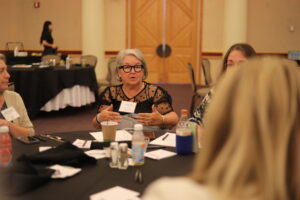
People often get involved with community development due to a desire to make their community better. This desire is rooted in bringing
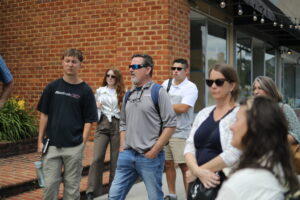
Community development is a group effort, and knowledge sharing is crucial in moving projects forward. Peter Buttler, a professor and extension specialist
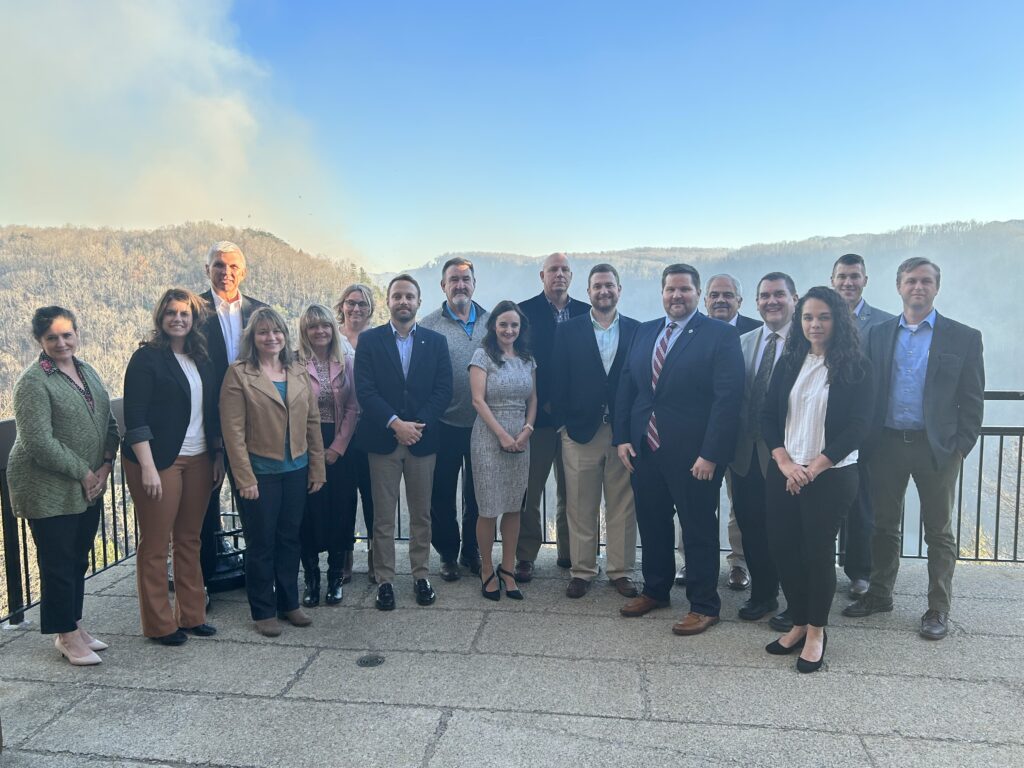
Our work is made possible thanks to incredible partnerships with other community development organizations across the state. From local economic development authorities (EDAs) to state level nonprofits working to uplift communities, all of our partners are crucial in making West Virginia the best it can possibly be by working together.
One partner that made our work truly profound this year is Coalfield Development. For years, Coalfield Development has worked to rebuild Appalachian communities by inspiring the courage to grow, activating the creativity to innovate, and cultivating communities of opportunity in central Appalachia.
We are proud to be part of Coalfield Development’s ACT Now Coalition, a broad network of organizations working hand-in-hand to uplift communities throughout Southern West Virginia. The ACT Now Coalition is infusing more than $63 million into programs to help communities using business development, building revitalization, and so much more.
The Hub is leading the Community and Business Resilience Initiative as part of the larger ACT Now Coalition to bring other partners with us to build up community and business resilience in the Coalition’s footprint.
“For decades, we’ve known the economy of southern West Virginia needs diversification. Some progress has been made on this goal, but not nearly enough,” Brandon Dennison, CEO of Coalfield Development, said about the ACT Now Coalition. “ACT Now constitutes a tangible opportunity to take a major leap forward in this generational challenge to become a vibrant, growing, diversified economy. In the wake of continued coal-job losses, nothing could be more important for our region.”
Our partnership with Coalfield Development is giving us a chance to take our work to new communities and to build upon our years of experience. Working alongside Coalfield Development in this large undertaking to bring $63.8 million to communities in Southern West Virginia is validation that the work happening to uplift West Virginia communities continues to grow.
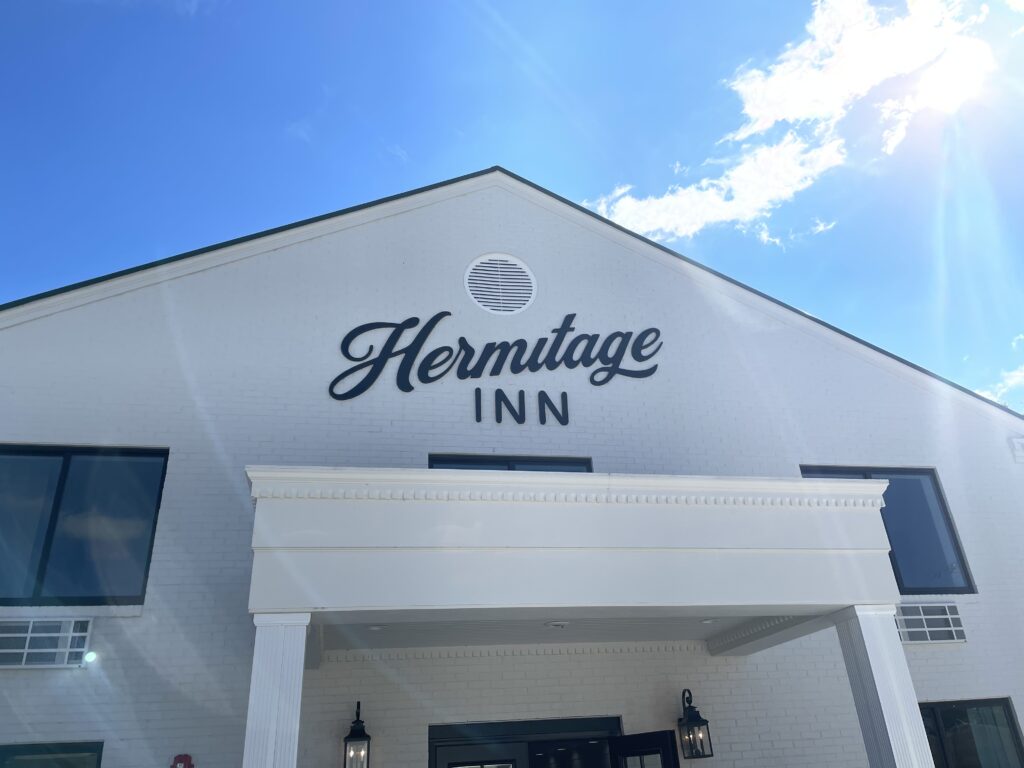
The Hub works alongside communities across West Virginia coaching community teams as they come together to make transformative changes in their towns. In 2022, one town stands out for its continued work and unwavering commitment to making its community a place where people want to live, work, play, and visit.
Petersburg, located in Grant County at the northernmost point of the Mon Forest, is filled with community members who want to make their town a destination. Not only have businesses opened, and stayed open, the town has transformed the way they present to the world through rebranding and outdoor recreational development.
As part of the HubCAP IV program, Petersburg utilized its technical assistance to push forward with projects to bring transformative change to its community. Part of the work Petersburg worked towards was creating plans to pave a hike and bike trail that runs along the Petersburg dike. The proposed trail will run approximately three miles along the Petersburg dike and will include multiple entrances for walkers and bikers. The group secured a $25,000 grant from Senator Hamilton, which was matched locally by the City of Petersburg, the County Commission, and the Board of Education, each adding an equal share to bring the total to $50,000.
This year, Petersburg witnessed a major upgrade to one of the town’s most iconic and historic structures: The Hermitage Inn. The hotel, which dates back to 1841, has been renovated and once again welcomes guests to stay the night and have a nice dinner in the restaurant.
The Hermitage Inn is the first project initiated and completed as part of the Downtown Appalachia: Revitalizing Recreational Economies (DARRE) program. Seeing the old hotel returned to its majesty has been an incredible development for Petersburg adding another jewel to the downtown area.
Seeing Hub communities come together to create transformative change thrills us. Community members are the subject matter experts on what their towns need. Our commitment to accompaniment and walking alongside communities as they do the hard work guides us in our work. Celebrating their victories with them gives us a moment to uplift those making the work happen.
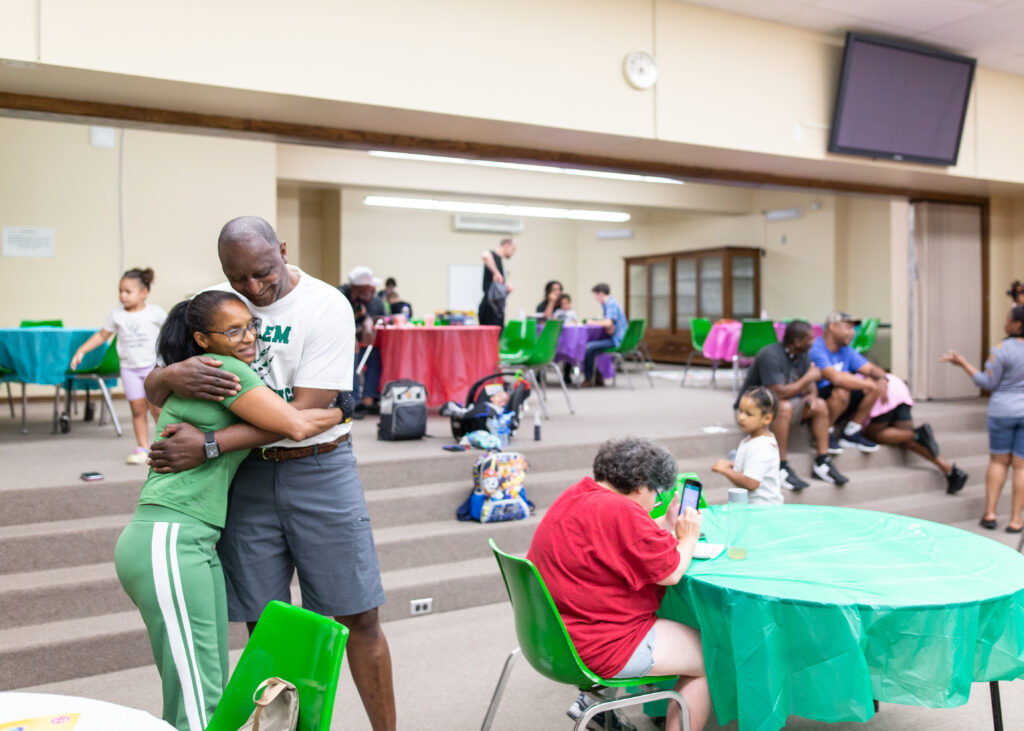
Since 2018, The Hub has been working diligently to bring Diversity, Equity, and Inclusion into our work. For years, the organization has been working internally to expand on one of our core values: “We believe diversity creates strength.”
We believe that now is a time when we must work from the ground up to commit to long-term efforts to build power through leadership development, programmatic strategies, and partnerships that commit to building power and advancing racial equity.
Looking back at our organizational history, we acknowledge that our work in rural communities with populations of less than 15,000 has not reached a diverse cross-section of people in West Virginia. Because of this, we began to ask, “Who isn’t here?” when examining our involvement in communities. The social unrest in 2020 led us to examine our role in white supremacy, ableism, classism, and gender discrimination, and the ways we have perpetuated unjust systems in our communities and across West Virginia.
Since 2020, our equity journey has included a staff racial equity learning series, making internal commitments to increasing our hiring and retainment of diverse staff including creating full-time Racial Equity Fellowship and VISTA positions, committing to increased coaching for rural communities of color across the state, and tackling the inherent challenges of advancing equity across the community development field within a highly rural, majority white state where Black and brown leadership has been historically marginalized and under-invested.
Our belief in the power of local people to see the value and the potential of their place, and of each other, is at the core of our belief in the potential we have to build power in West Virginia to advance racial equity, inclusion, and accessibility while disrupting systems that have historically excluded some communities.
We are committed to engaging in conversations to uplift communities and leaders of color to move from talk to action on why race matters in West Virginia as we work to disrupt these systems. We will support investment in Black-led organizations and rural Black leadership. And we are committed to driving public and private investments into these spaces, both organizational and geographic.
A core team led by Unleash Tygart, Inc participated in Opportunity Appalachia, receiving technical assistance to support a community development project located in an Opportunity Zone.
Core teams led by Thundercloud, Inc. and the City of Huntington participated in Opportunity Appalachia, receiving technical assistance to support community development projects located in Opportunity Zones.
A core team led by Crawford Holdings, LLC participated in Opportunity Appalachia, receiving technical assistance to support a community development project located in an Opportunity Zone.
Residents participated in round 4 of The Hub’s capstone Communities of Achievement program with a focus on building local recreational economies.
Residents participated in round 4 of The Hub’s capstone Communities of Achievement program with a focus on building local recreational economies.
Residents participated in round 4 of The Hub’s capstone Communities of Achievement program with a focus on building local recreational economies.
Residents participated in round 4 of The Hub’s capstone Communities of Achievement program with a focus on building local recreational economies.
Residents participated in round 4 of The Hub’s capstone Communities of Achievement program with a focus on building local recreational economies.
A core team led by Woodlands Development Group also participated in Opportunity Appalachia, receiving technical assistance to support a community development project located in an Opportunity Zone.
Residents participated in round 4 of The Hub’s capstone Communities of Achievement program with a focus on building local recreational economies. Read their community case study.
Residents participated in the Blueprint Communities* program to engage their neighbors and co-create strategic plans for their future.
Residents participated in the Blueprint Communities* program to engage their neighbors and co-create strategic plans for their future. Read their community case study.
Residents participated in the Blueprint Communities* program to engage their neighbors and co-create strategic plans for their future. Watch their community documentary.
Residents participated in the Blueprint Communities* program to engage their neighbors and co-create strategic plans for their future. Read their community case study.
Residents participated in the Blueprint Communities* program to engage their neighbors and co-create strategic plans for their future.
Residents participated in the Blueprint Communities* program to engage their neighbors and co-create strategic plans for their future.
Residents participated in the Cultivate WV program to kickstart community and economy building. Read their community case study.
Residents participated in the Cultivate WV program to kickstart community and economy building. Read their community case study.
It has been a year of abundant opportunities and partnerships across the state, and a year that has pushed all of us to work harder, faster, and smarter – together.
At The Hub, we say that “the work works when you put in the work.” This means that our approach to community-based development, and individual leadership development, really does transform local communities, especially when we all work together for the same goal, and stay committed to working together for the long haul.
In 2023, we continued to be amazed at the local leadership, drive and innovation we saw in communities throughout the state that are building locally-driven development from the ground up. Our network of community leaders, partners and opportunities keeps growing and shows no signs of slowing in 2024!
We extend our deepest gratitude to everyone for being part of the larger Hub community as we reflect on this year’s deep impact in West Virginia communities through our work. We are thrilled to have champions who believe in our mission that every community in West Virginia can achieve economic growth when they are supported with the tools and training they need to lead and spark positive change.
We believe strongly in the fact that putting in the work yourself to improve your neighborhood, your town, and our state is where true transformational change happens. With strategic partners and thought leaders like you in the work with us, we continue to be able to walk alongside community teams as they do the work to uplift their communities.
Thank you to all of the community teams and leaders who are brave enough to keep showing up every day, and putting in thousands of hours of volunteer time to support your communities and the entire state. Your determination in the face of difficult work and far-off successes is something to applaud yourself for – and to celebrate.
Whether you’re volunteering on the ground in your community, sharing our stories of hope with your friends and neighbors, or attending a virtual event with The Hub, your participation in our work is what keeps it going. Thank you for all your work and support this past year, and we are excited to continue in the work with you in 2024!
In Continued Accompaniment,